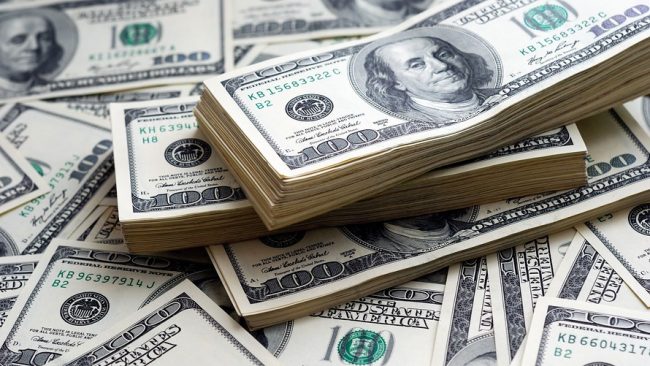The U.S. dollar rebounded on Thursday, recouping most of the ground lost in the previous session after the Federal Reserve jolted markets by abandoning all plans to raise rates this year, a signal its three-year campaign to normalize policy might be at an end.
The dollar index, which measures the greenback against six major currencies, was up 0.53 percent at 96.271. The index fell 0.6 percent on Wednesday, closing below its 200-day moving average for the first time in more than 10 months.
On Wednesday, the Fed took a dovish stance, signaling it will not hike interest rates this year in the face of a slowing economy, while announcing a plan to end its balance sheet reduction program by September.
“It makes sense for the U.S. dollar to have fallen after the Fed meeting, but similar to what occurred with the euro after the March 7 meeting, the reaction may have been overdone,” said Juan Perez, senior currency trader at Tempus Inc in Washington.
The euro tumbled earlier this month after the European Central Bank postponed the timing of its first post-crisis rate hike to 2020 at the earliest and launched a new round of cheap loans to banks. The common currency has gained nearly 2 percent against the dollar since then.
“The reality is the economy of no country can really handle further increments to borrowing costs, and we may see more scrutiny over cuts than hikes from now on,” said Perez.
Despite the rebound on Thursday, Perez said he expects the dollar to remain pressured for the rest of 2019.
FX strategists at Morgan Stanley also see the Fed’s move as spelling trouble for the dollar.
“We see the FOMC decision as a meaningfully USD-negative signal and anticipate further declines,” they wrote in a client note.
Norway’s central bank raised its main interest rate on Thursday, as expected, and said its next hike may come earlier then previously planned, boosting the crown currency against the euro and the dollar .
The Swiss franc was up slightly against the greenback after Swiss National Bank Chairman Thomas Jordan said increasing global economic risks meant the central bank would stick to its ultra-loose monetary policy for the foreseeable future.
The pound extended losses amid fears of a catastrophic “no-deal” Brexit should lawmakers hold firm in their rejection of Prime Minister Theresa May’s divorce deal with the EU. Sterling was last down 0.42 percent at $1.314.
The Bank of England kept interest rates steady on Thursday.











